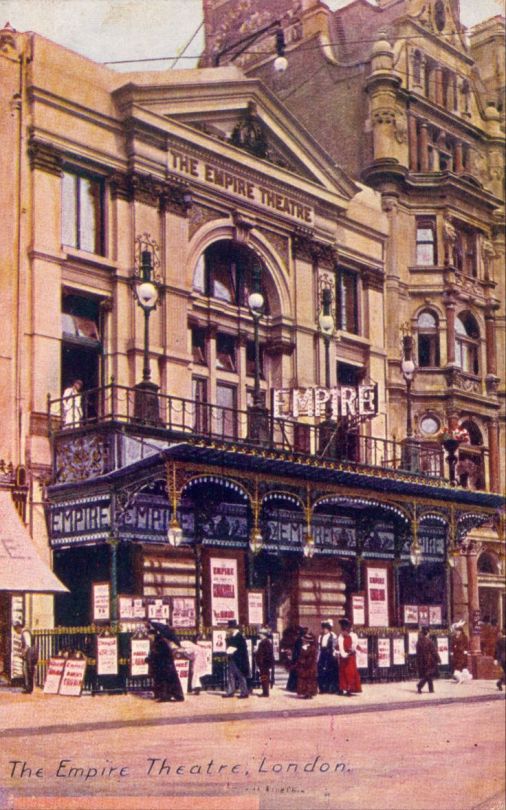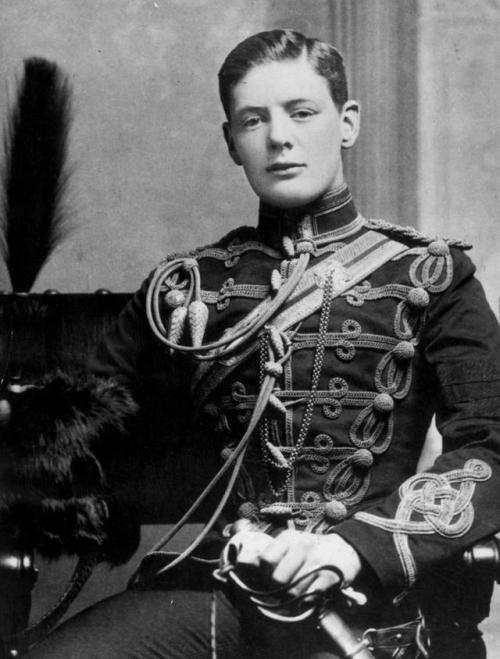#ormiston chant
Decades before he would take on the Nazis, Cadet Winston Churchill of the Royal Military College at Sandhurst launched his first foray into (politicall) battle as the (self-appointed) champion of sex workers, brandishing his wit against the “prudes” who demanded stricter regulation of prostitution.
It was the Naughty Nineties and Churchill, grandson of the Duke of Marlborough and son of the former Chancellor of the Exchequer, was caught up in the excitement of the popular reaction against Victorian Puritanism. The young soldier’s passion was the music hall and his favorite venue was the Empire, which featured a men’s bar alongside a promenade where dollymops and toffers strolled, advertising their services, showing off their wares and negotiating their fees.

When a crusader against prostitution with a name suited for a Monty Python sketch, Mrs. Ormiston Chant, succeeded in persuading local officials to separate the courtesans from their potential clients with a barricade, Churchill mustered his burgeoning skills as a political activist. He hocked his watch for funds to support a protest and on the evening of the third day of November, 1894, three weeks shy of his twentieth birthday, the cadet hopped onto a chair among the tipsy Empire clientele and declared, “I stand for Liberty!”
His first public speech triggered a lawless outburst which culminated in the destruction of the barricade. The sense he could motivate people with his words intoxicated Churchill. “It was I who led the rioters,” he wrote excitedly to his younger brother.
The victory was temporary. The London County Council sided with Mrs. Chant and the barrier keeping the vices of alcohol and prostitution separate reappeared. The Bishop of London chastised Churchill in The Times: “I never expected to see an heir of Marlborough greeted by a flourish of strumpets.”
Unapologetic, the heir of Marlborough wrote to his aunt, “It is hard to say whether one dislikes the prudes or the weak-minded creatures who listen to them most. Both to me are extremely detestable.”
Was Cadet Churchill a personal patron of the sex workers? Probably not, historians say. A music hall girl who spent the night with him reported, “Winston had done nothing but talk into the small hours on the subject of himself.”
In power, Churchill did not pursue formal decriminalization, but he continued to believe that using the legal system to oppose sex workers was, as he once told his father, “coercive and futile.” Prostitution flourished in London during the Second World War; even the streets of posh Mayfair were crowded with businesswomen offering succor to young soldiers. Cabaret star Florence Desmond sang what may have been a typical sales pitch:
I’ve got a cozy flat.
There’s a place for your hat.
I wear a pink chiffon negligee gown.
And do I know my stuff,
But if that’s not enough,
I’ve got the deepest shelter in town.
Churchill later recalled the Empire incident in his official biography. The old warrior said his speech had been “a serious constitutional argument upon the inherent rights of British subjects; upon the dangers of State interference with the social habits of law-abiding persons; and upon the many evil consequences which inevitably follow upon repression….”
(Additional sources: First Lady: The Life and Wars of Clementine Churchill by Sonia Purnell; The Last Lion: Winston Spencer Churchill by William Manchester; London in the Twentieth Century: A City and its People by Jerry White.)
Post link

